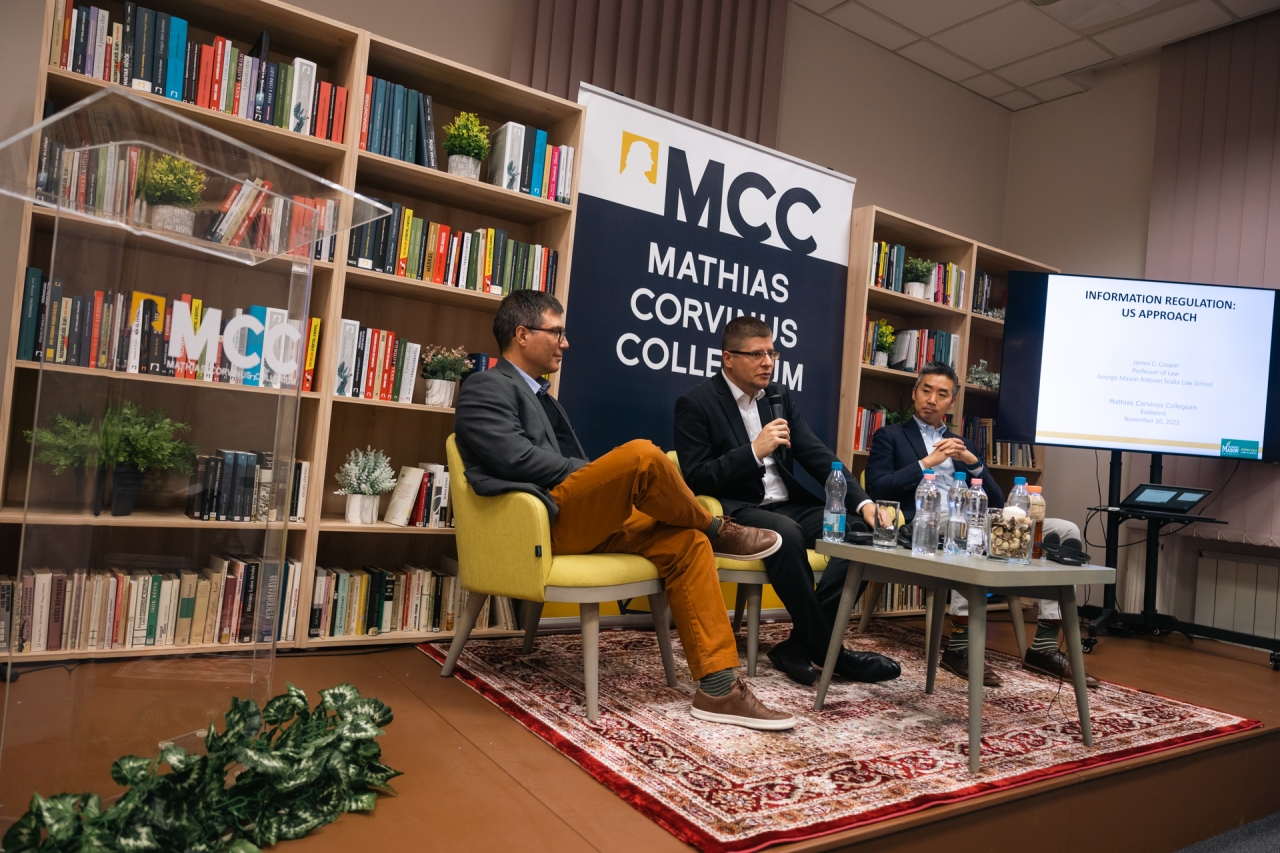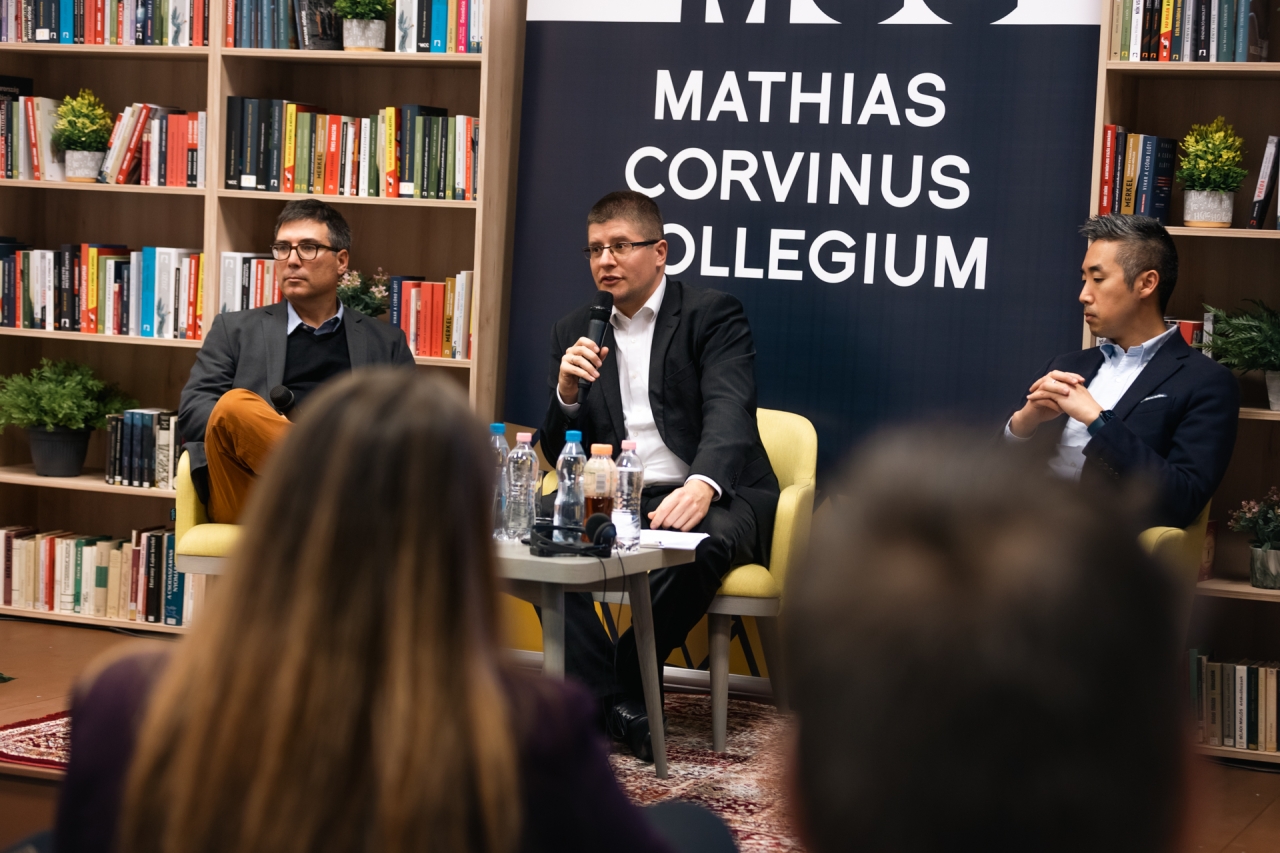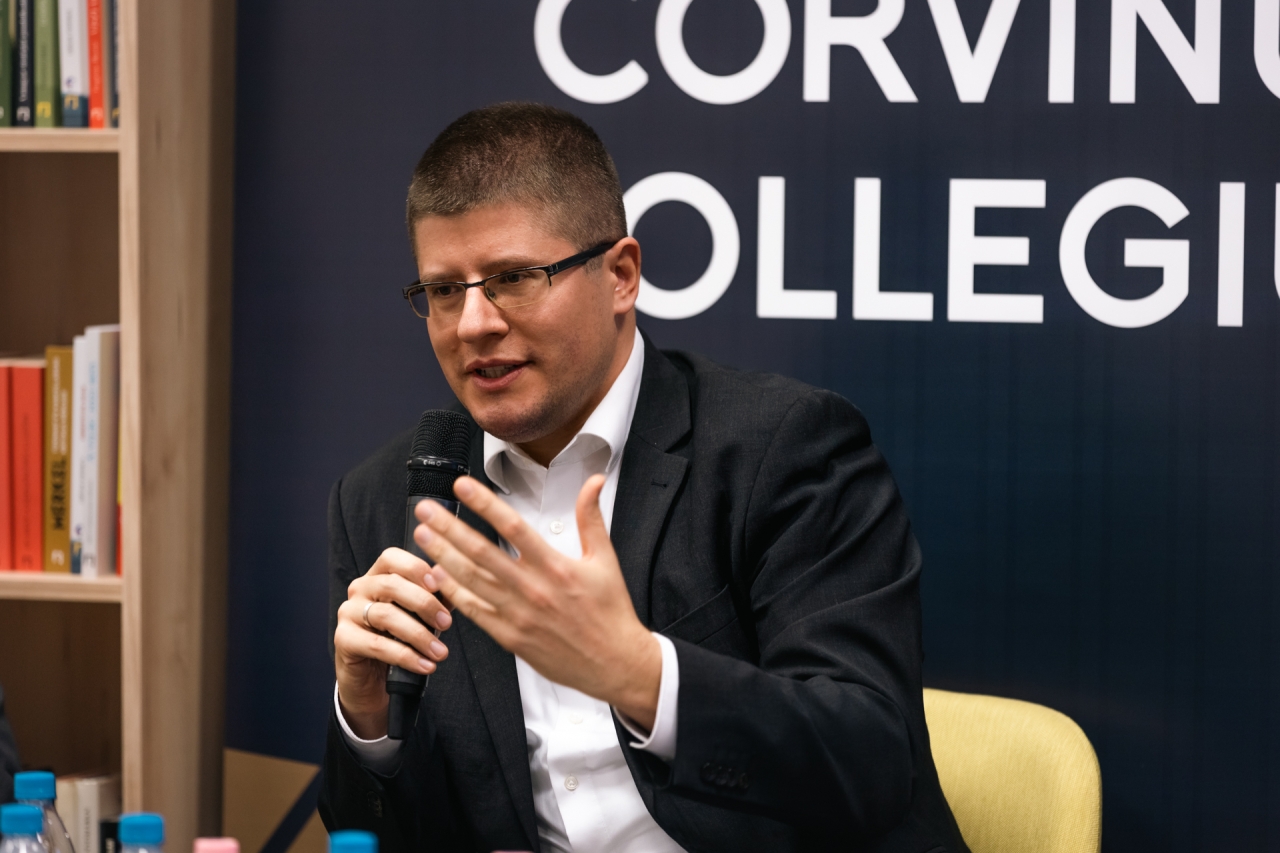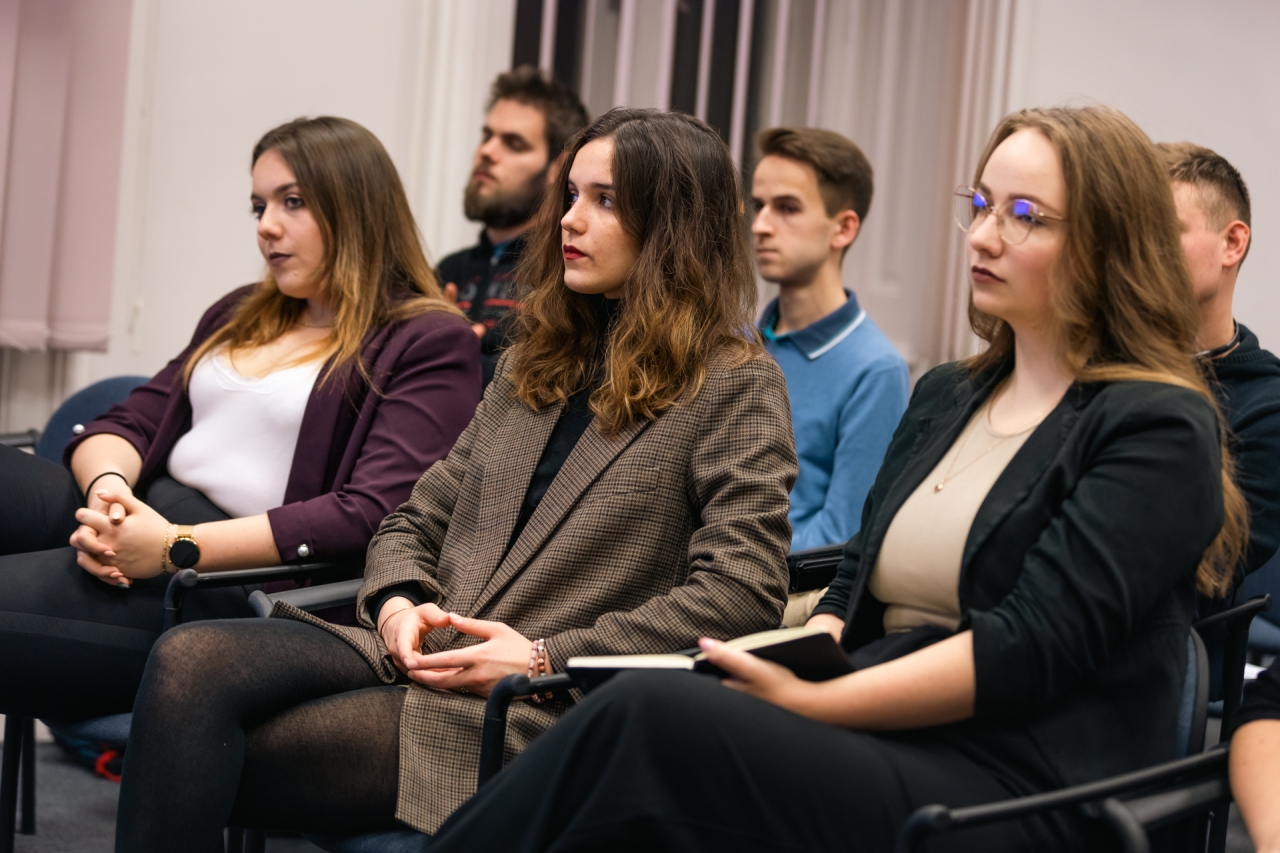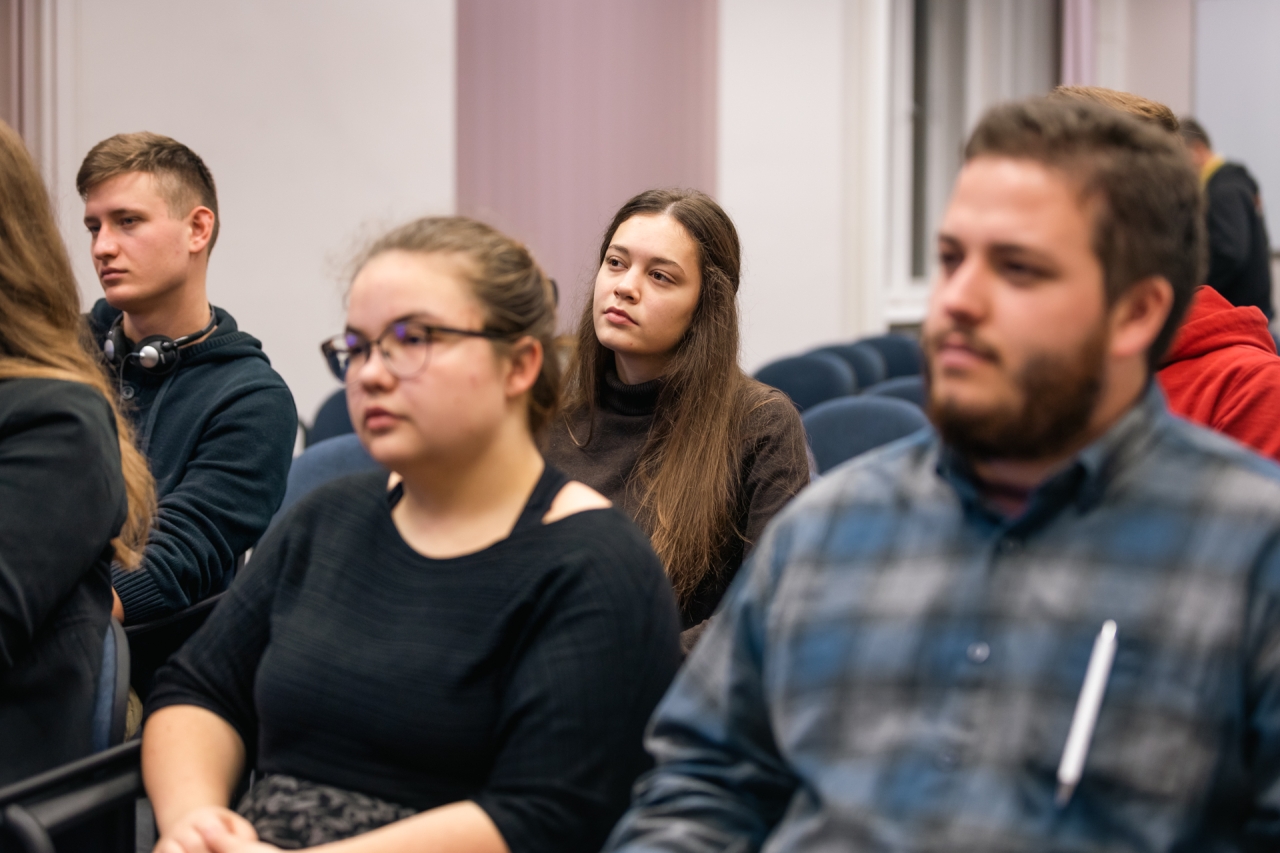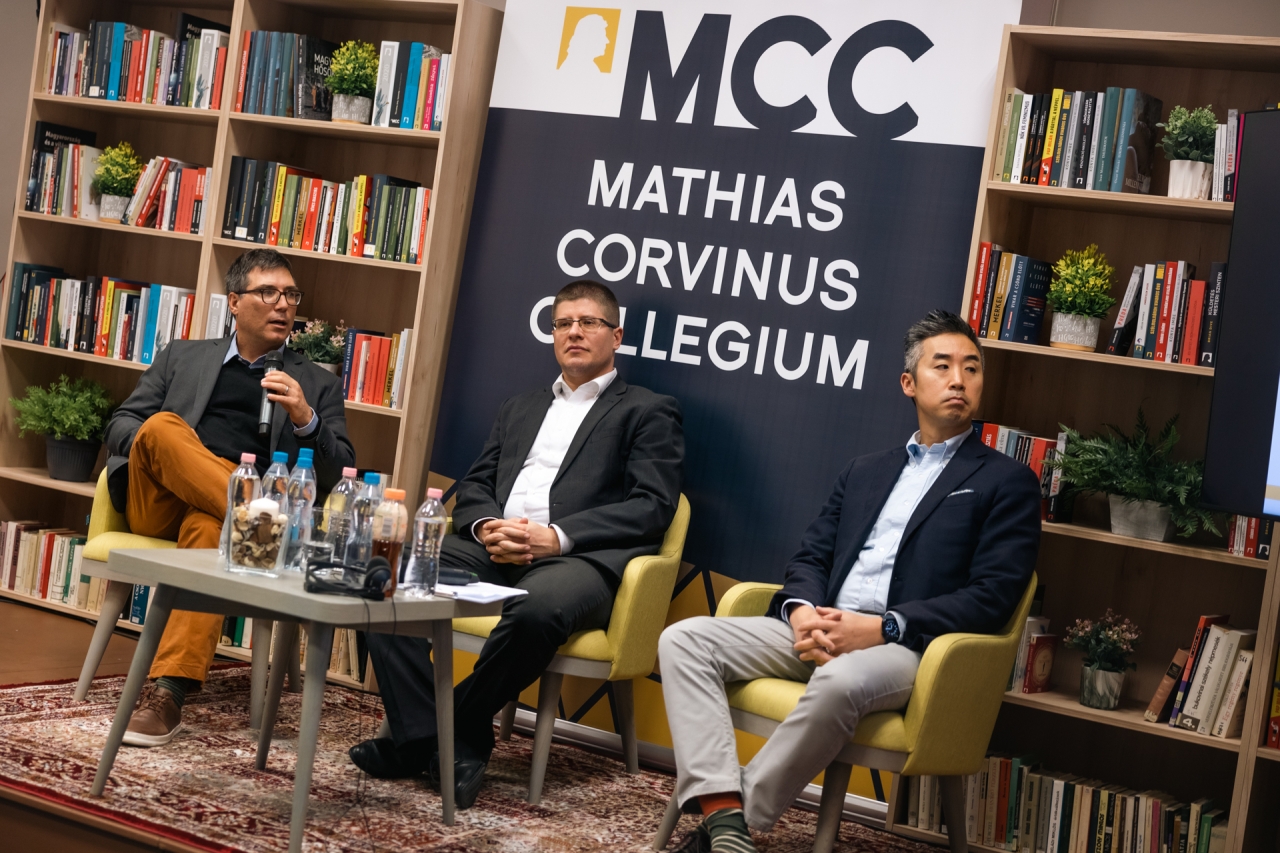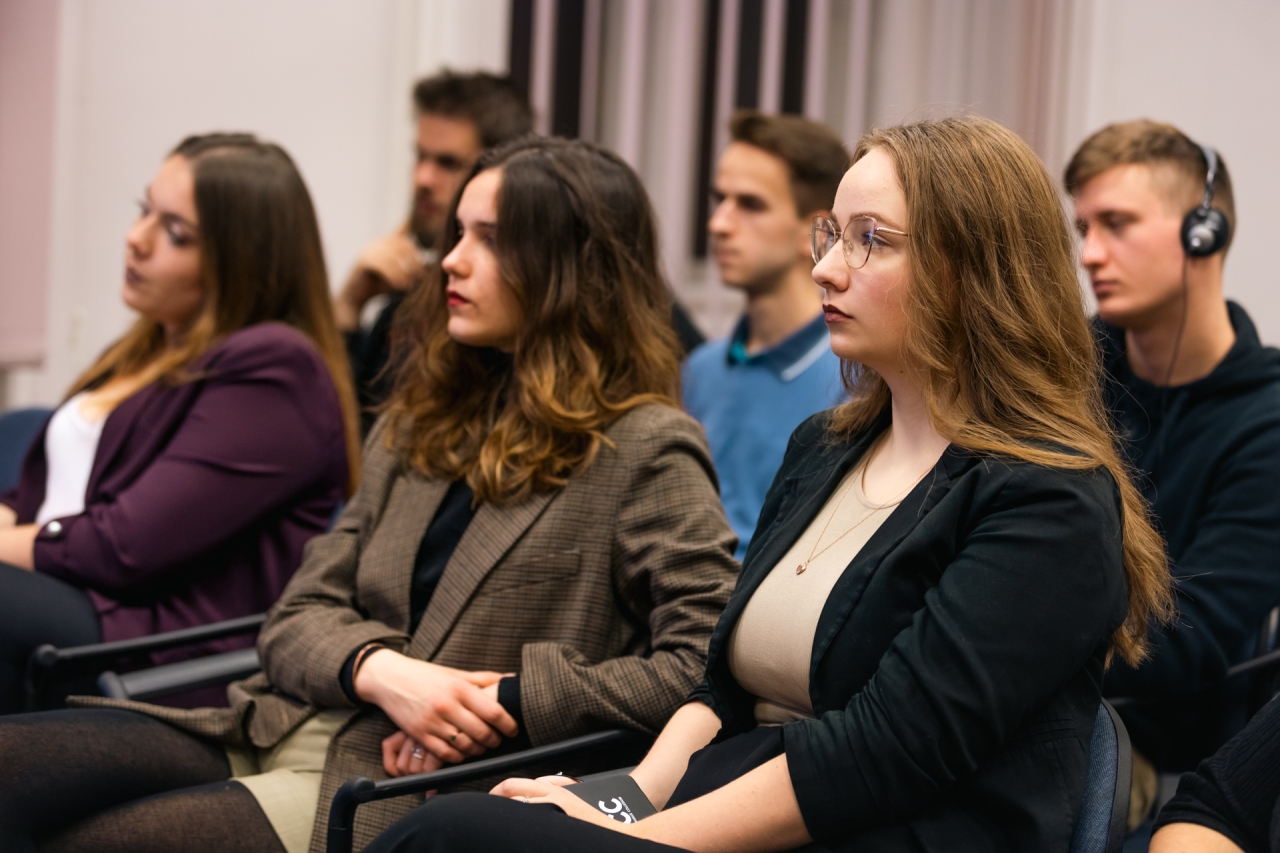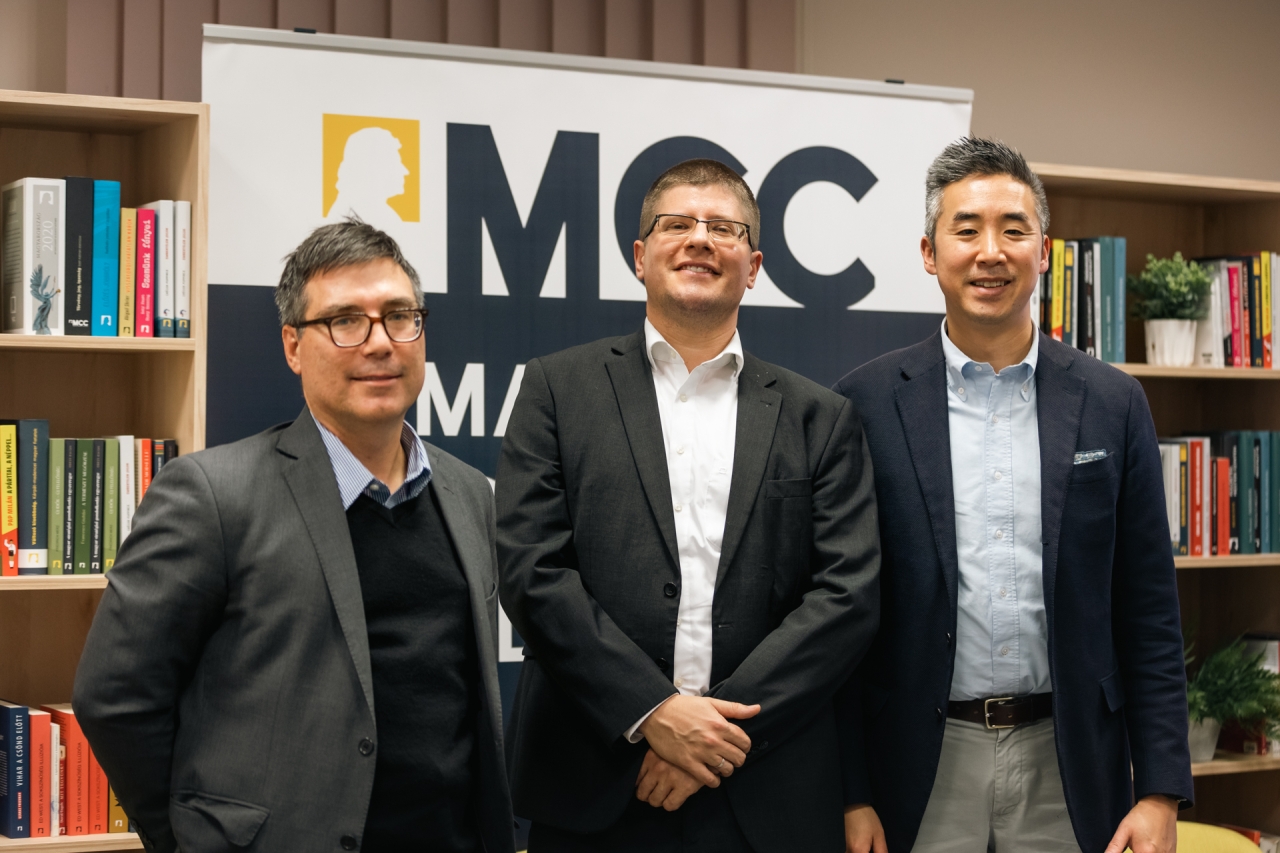Reading time: 1 minute
On 11 November, as the closing event of the MCC Conference on Essential State Functions in Platforms Regulation, Márton Sulyok (Head of the MCC Public Law Center) talked to two American professors from the Antonin Scalia School of Law of George Mason University in Washington, D.C. The American academics participated at the conference and the Szeged event to explain to European audiences the American approaches to privacy and online platforms, from the point of view of an approach called “law and economics”.
Following a brief introduction by Márton Sulyok of the “platform economy” and why the question of regulating online platforms is an issue in Europe, he gave the floor to the guests to shed light on American approaches.
Firstly, James C. Cooper, Director of the Economics and Privacy Center at GMU, talked about how privacy-conscious users really are when making decisions about using certain online platforms. In this context, the social benefits and social costs of privacy were also addressed, as well as the so-called “privacy paradox”. In the questions section, he talked about what different layers of privacy are recognized in the United States and how freedom of speech and the First Amendment relate to privacy in the regulation of online platforms.
John M. Yun touched upon our conceptions and misconceptions about large online platforms as the ones being at fault of privacy fraud, and the reality of the situation based on American statistics. He also talked about an area of competition law called antitrust, and reflected on such opinions that fault dominant (large) online platforms for increased violations of privacy.
